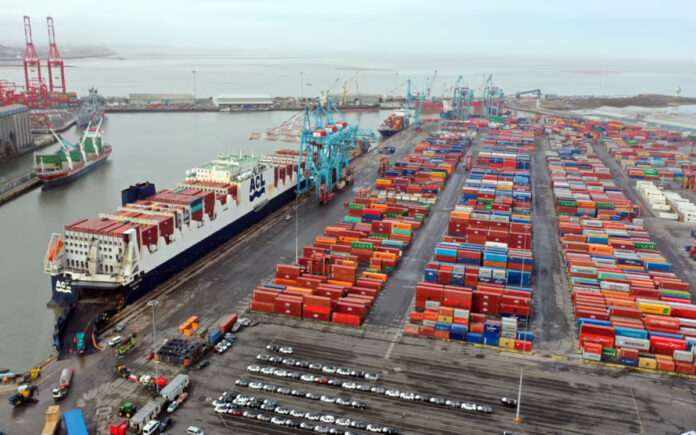London: The British government has announced a £20 billion ($26 billion) boost in export finance to help domestic businesses weather the growing uncertainty triggered by global trade tensions, particularly U.S.-imposed tariffs. The support package aims to provide financial stability and strategic assistance to companies grappling with the shifting dynamics of international commerce.
The newly expanded lending facility, managed through UK Export Finance (UKEF), will increase the agency’s total capacity to £80 billion. Up to £10 billion will be specifically allocated to companies most directly impacted by recent tariffs, with a particular focus on key export sectors such as steel, aluminium, and automotive.
The move comes amid escalating trade pressures resulting from U.S. President Donald Trump’s tariff regime, which includes a 25% duty on steel, aluminium, and vehicle imports, as well as a 10% baseline tariff on most other goods coming from countries including the UK.
In announcing the measures, Finance Minister Rachel Reeves emphasized the importance of backing UK firms through what she called a transformative phase in global trade.
“The world is changing, which is why it is more important than ever to back our world-leading businesses and support them to navigate the challenges ahead,” Reeves said.
“Today’s announcement will do that just, with thousands of businesses right across the country set to benefit.”
Also Read | Syrian Ministers to Participate in IMF, World Bank Talks Amid Push for Reconstruction
The government also outlined targeted support for small and medium-sized enterprises (SMEs), which will be able to access individual loans of up to £2 million under the initiative. Officials say this financing will serve as a critical buffer against short-term shocks while helping UK firms sustain export momentum in uncertain markets.
Also Read | New Zealand Seeks U.S. Support in Indo-Pacific as Strategic Tensions Rise
By providing this additional liquidity, the UK government hopes to fortify domestic industries against tariff-driven disruptions and maintain Britain’s competitive edge in the international marketplace.



